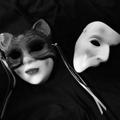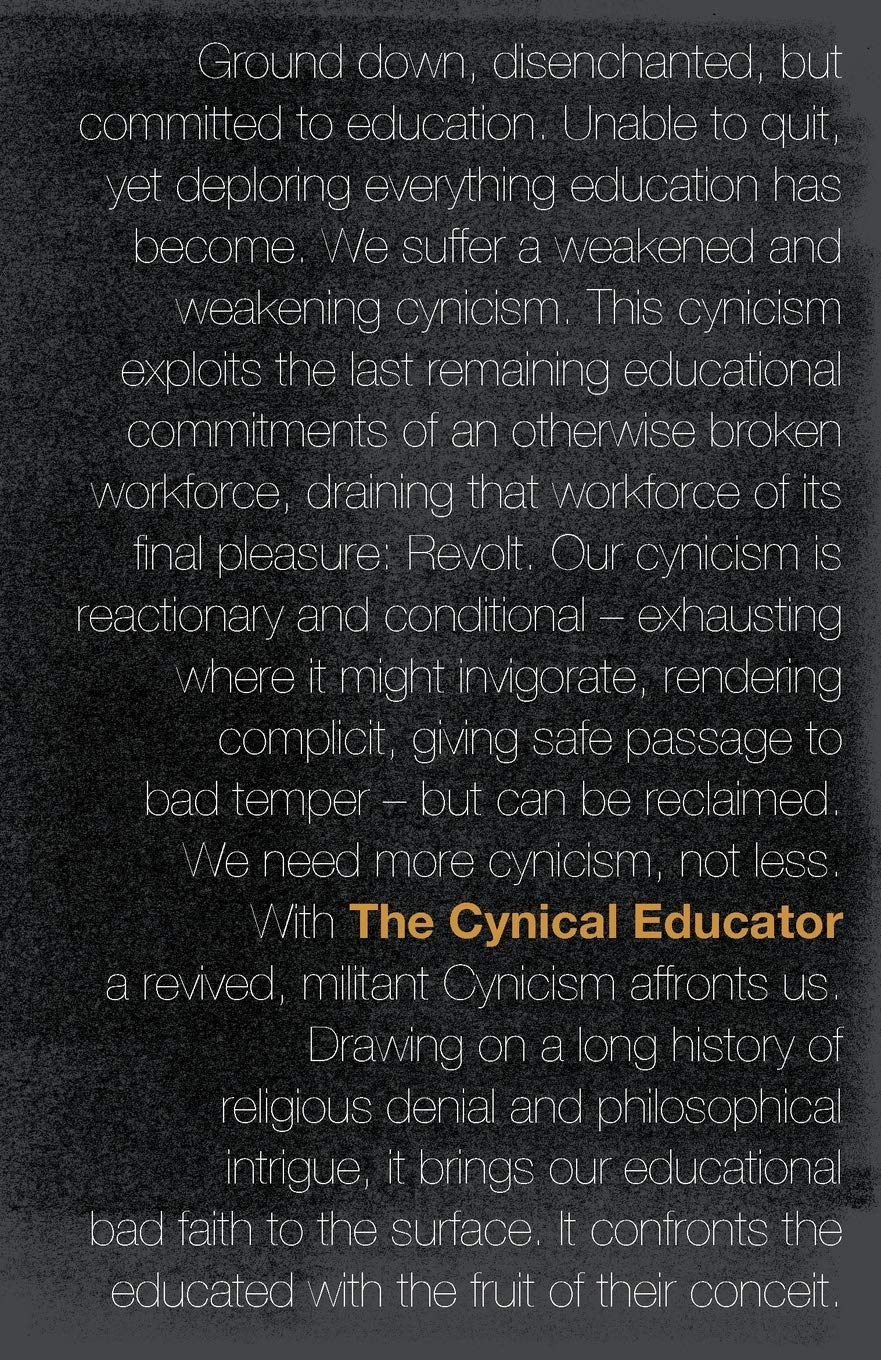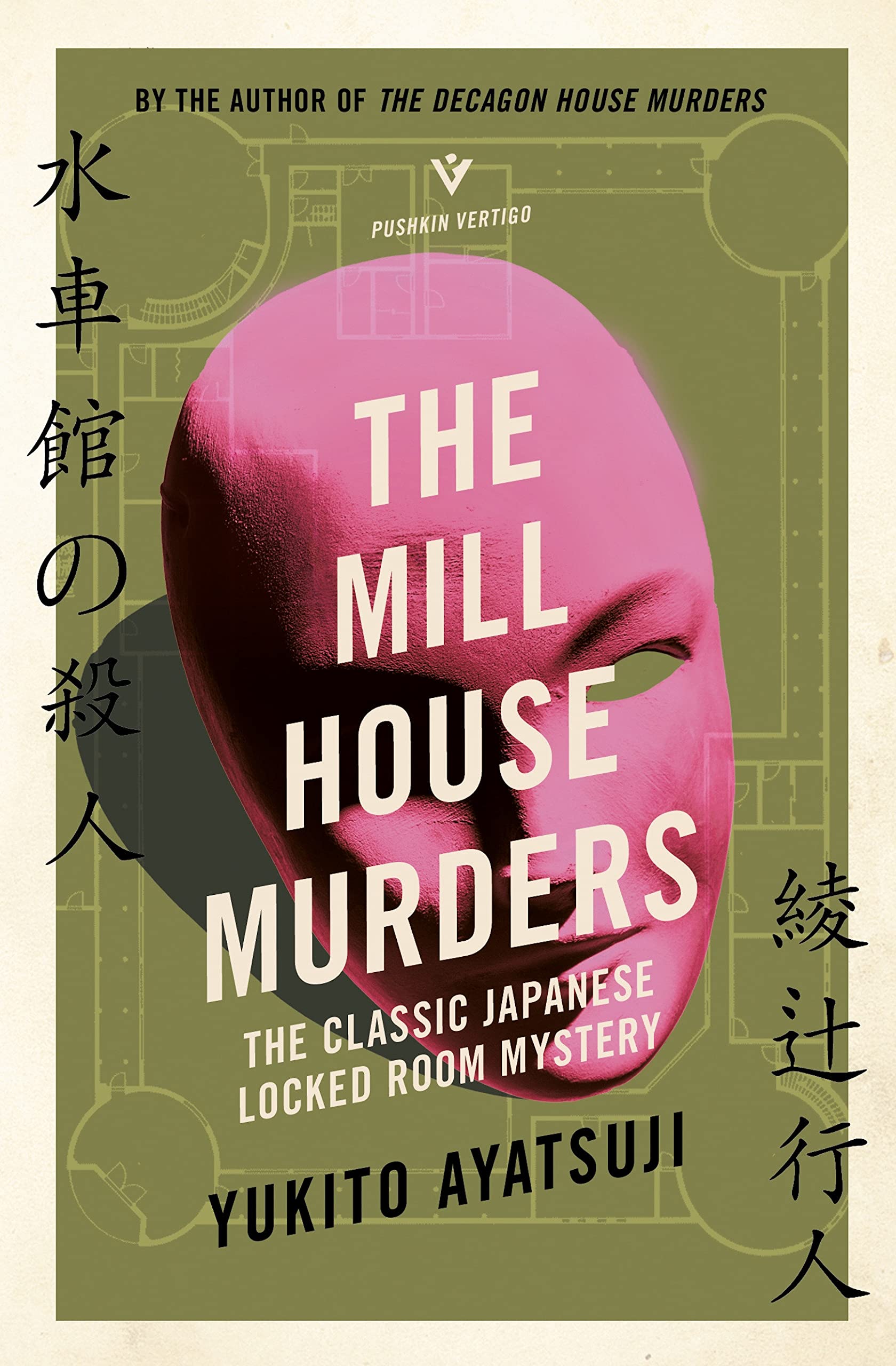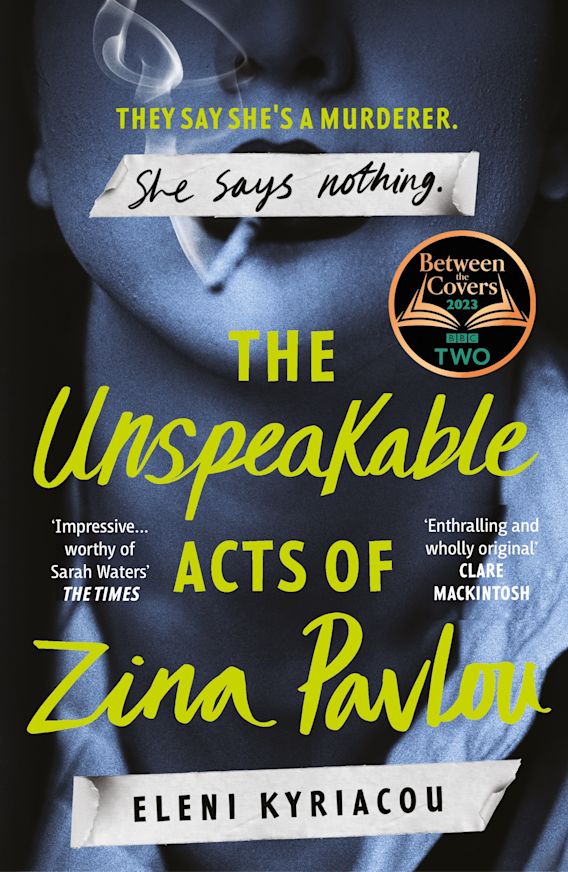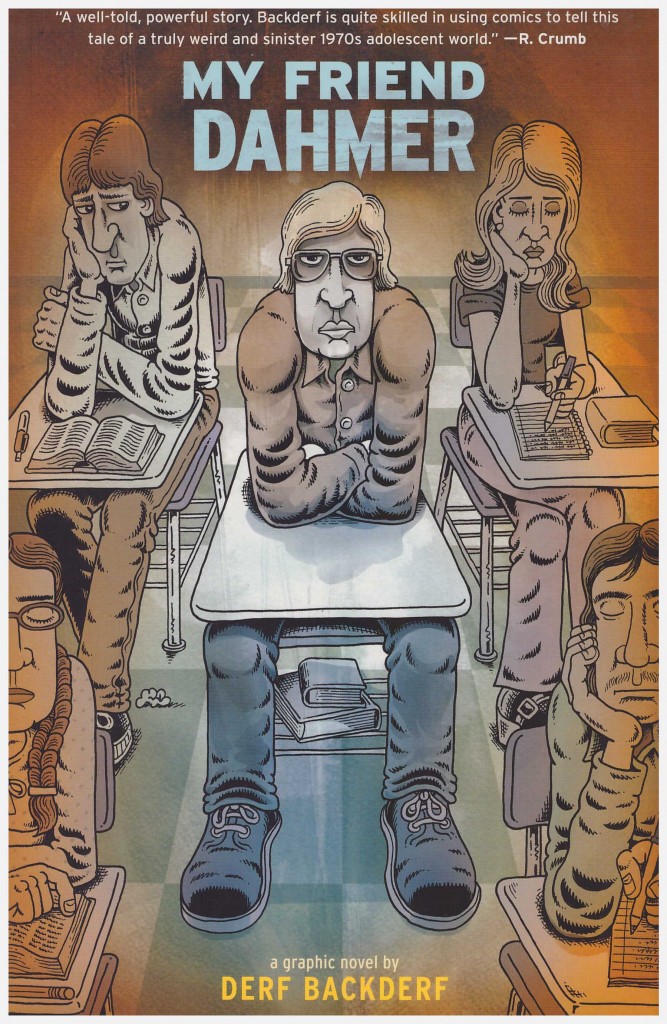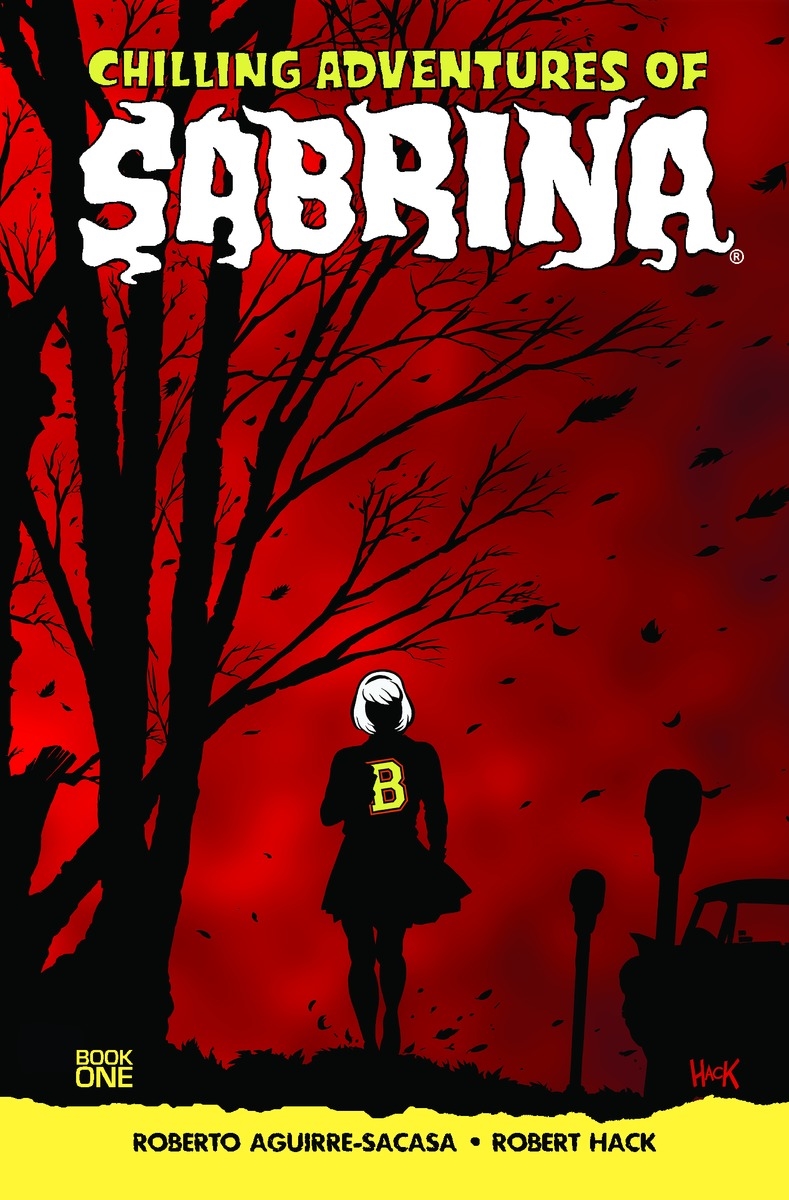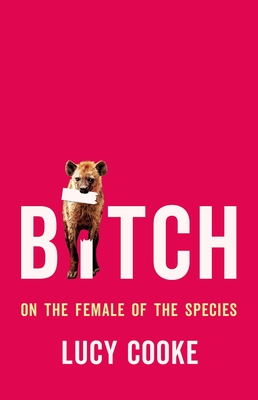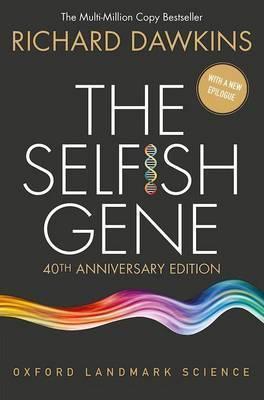No, I take that back. It did one thing valuable for Derf Backderf, and that's give him some prizes and name recognition off the back of his so-called "friendship." This book is a cash-grab, pure and simple... Honestly, it's a bit too obvious of one, and if this book was written about a subject who wasn't as heinous as Jeffrey Dahmer, it would've never received the acclaim (or movie adaptation) that it did.
I read this book because I saw it on the dubious wishlist of a person claiming to be a special education teacher, seeking donations for her classroom. I'm kind of mortified that a person working with disabled children would want to have this portrayal in their classroom because of how uncritical it is for all the ableism in it, along with how it seems to support the ostracisation of people deemed as "strange." But if I also consider my many searches to corroborate things that Backderf claimed happen in this book, I find a ridiculous number of Quizlets made by teachers who apparently teach this book. (And some of the questions on those Quizlets are a bit... fucking weird, following in the steps of this book. Like giving your students an online quiz that casually just tosses suicide out in the same manner of the book.)
Here's a short list (with lengthy explanations) of things that I found problematic within the book, which Backderf either fails to engage with or tries (and fails) to explain away:
First, there is an incredible amount of unchallenged ableism that is presented in the text. In the 'notes' for the book, he tries to defend it as "just how people were." In a blog post that I found (which he wrote during the filming of the movie adaptation), he claims people cried foul but that he thinks it's because they "just don't understand how teenagers actually were" or "remember how hateful they were as adolescents" and that he was "writing himself and his friends with brutal reality." I'm paraphrasing, of course. The problem here is that his narrator has a lot of future-knowledge that Teen Backderf would never have had, so I don't understand why Narrator Backderf doesn't take the time to slag himself off for being the shit he clearly was (since, as he claims in the notes, he and his friends feel "such shame" about what they did).
By the way, the things they did? Were to call up a man with cerebral palsy and mock him, recording the prank phone calls they did to him. They paid Dahmer to do a "command show" at the mall, which the planned together and took him there to perform his mockery of the physical mannerisms and speech patterns of a person with cerebral palsy (the same guy, btw, that the four band kids were prank calling). They used "Dahmerisms" throughout their speech and in their school newspaper and yearbook, which were included them mocking Dahmer as he mocked people with cerebral palsy. That's what he shows in "brutal reality" with zero challenge to the behaviours at all. These are the kinds of scenes presented in the book. They are not challenged in the text in any meaningful way. I don't know how you can "be ashamed" of what you did and present these without any kind of challenge or self-reflection.
Second, there is a constant focus on how Joyce 'Rocky' Dahmer was the worst parent and was at fault for her son's heinous crimes. This is a massively misogynist trope, and it is one that is still pervasive thanks to all the retellings. Joyce was known for having mental health struggles and working through them; she was known for struggling with what her son did (and I can't blame her). People who knew her said that she was immensely sympathetic to Dahmer's victims and that she absolutely despised people who tried to make money off of her or her son. She felt the memoir her ex-husband wrote was full of lies (and it probably was, as he called her a hypochrondriac and a germaphobe... but she was an HIV/AIDs counsellor in the fucking 90s, when everyone else wrongly claimed that HIV/AIDS patients shouldn't be touched). She is presented in some of the most ableist and misogynist light, and it is... disgusting.
His father barely receives any of the same criticisms. He's barely in this story because, as Backderf claims in notes, he was "barely around when Backderf was." Considering (and I'll cover this more later) the primary question Backderf has is "Where were the adults," it seems very interesting that Lionel Dahmer didn't come under the same scrutiny that Joyce did. (There's a lot of excusing of this because "at the time," mothers were just at home more and fathers were at work more. So what? Doesn't that just mean that a person can presume that fathers were more negligent? Oh, wait...)
Third, it focuses far too much on "where were the adults." Backderf answers this a number of times in his own narrative (his parents were in the middle of a bad marriage and messy divorce, they apparently argued a lot), but he also contradicts himself with his own notes. He says that "no teacher ever caught Dahmer drinking" in the narrative, but then he has a note saying that Dahmer was caught at least once (and then became far more careful after the fact). He outlines how it was more normal for teachers to ignore contraband outside the school rather than inside the school. He ignores that sometimes it's difficult for teachers to do anything (because the school system won't let you, sometimes parents don't believe you, sometimes you think it might put the kid in more danger if you do tell... there's a lot of factors, but that doesn't mean that people don't help).
Now, as a school abolitionist teacher who recognises many of the flaws, I'm not here to fully defend teachers. But I do think this nuance of how hard it can be to ensure that people are safe... is completely ignored. It's not an easy task, and the systems of the world that we live in make it complicated intentionally.
Also, Jeffrey Dahmer was a white boy growing up in a white supremacist country; that gave him a lot of cover for his teenage behaviour, which also explains the constant "I didn't notice anything wrong with him" that Backderf experienced when he interviewed teachers who were at his school during his time as a student. This is something Backderf doesn't acknowledge in any capacity. He also ignores that he's talking about the 1970s. There's lot of "of the time" excuses, but this one seems to get written out here for some reason. If Dahmer had told anyone about what was supposedly in his head, what kind of response would he have gotten? Narrator Backderf with the future-knowledge ignores this entirely.
Fourth, I don't think Backderf was ever really friends with Dahmer. I think he considered Dahmer a friend after the fact or rewrote his own history to make it seem that way. But the narrative repeatedly shows that Dahmer was outside of his friends group, that they didn't really like him, that they viewed him as disposable, that they wanted to use him for their own amusement. That is not friendship. Hell, in the text, Backderf says that Dahmer was "more like a mascot" to them than a friend. This is a message that is repeated over and over and over again, yet the title of this book is My Friend Dahmer and not We Bullied Dahmer or My Mascot Dahmer.
Much of what was written about their friendship and how they interacted honestly comes off as bullying, and I think it's fair that (if Backderf is going to start blaming people for the stalking and carefully planned murders of vulnerable people by an adult Dahmer on "Where were the adults" logic) we ask questions about the impacts of Backderf and his other band friends pretending to befriend someone—who they routinely left out of activities because they saw him as too weird or possibly because they'd be embarrassed by his antics anywhere else but school or paying him to do it at the mall—and then later dropping and ostracising him.
It doesn't get better as you go along, either. After you read or skip past all the sources and notes about the sources and a weird biography of Dahmer written in the style of being Backderf's memoir, there are two pages of comic panels revealing how Backderf found out about Dahmer's heinous murders. These are written in the same style of the after-credits scene of a Marvel movie, which comes off a little tasteless. The most petty argument I have for this section is that Backderf says "thirteen years later" on the first one, which it is thirteen years from 1978... But the panels in his story ended in 1988, which is three years later. This is just one more example that he doesn't pay attention to his own writing and narrative. But the most egregious part is that he portrays his wife as playing a game of Guess Who with him. She relays the core details of what Dahmer did to him and is like "He went to Revere! He was in your class!" Character Backderf is shown being like "What!?! Who!?!" To this, his wife simply says "Guess!" This is another hint to me that Backderf did this as a cash-grab for having been in the same proximity as Dahmer and for having actually used and mistreated Dahmer (according to his own text). He was not friends with this guy. If it were true, this Guess Who game off the back of sensationalised details of Dahmers gruesome murders makes his wife come off as a heartless person. It's shown in the same way that a person would do it after running into someone they hadn't seen in ages down at the grocer, but because of the subject matter? And the claim that he was Dahmer's friend? It comes off as insensitive and rude.
Anyway, Backderf (good friend that he is, I guess) plays along with his wife in her silly game of "Guess Which of Your Classmates Murdered Seventeen of People." He first guesses someone else! "Uh, no, it's not him." Then he guesses Dahmer! The narration for this ridiculous Marvel scene in 1991 is like "That's right, Dahmer was my second guess!" I can't tell if this is him trying to be like "Yeah, I did so well guessing that on my second try," but it reads that way considering everything else.
Fifth, there's a random and unexplained scene where Backderf is dressed as Hitler doing a comedy sketch? Which Backderf assures us was very funny. I don't think the reference lands or that it would've landed even in 2012 because I sure as fuck didn't get it, and I had just started elementary school when Dahmer was caught (just to point out my age). I think, based on searching, it relates to an incredibly not funny joke about Hitler still being alive and found by some neo-nazis in Argentina, but... the rest of my search kept taking me to neo-nazi memes, and that was making me incredibly angry and sick. The most logical conclusion I can come to is that it's such a scene put in for shock-value and edge, not for any real narrative purpose. "Oh, haha, I was once dressed as Hitler for a school variety show and was talking to Dahmer." If anything, it makes me question Backderf, too. (This is even more true once you remember that this story takes place in Ohio, and Ohio has frequently had major issues with both the KKK and Nazis. Which usually overlaps. Like, along a major highway, there are the burnt remnants of the white crosses of the KKK. In some cities and towns, they even were allowed to donate crosses to Christmas decorations, with "donated by the KKK" plastered on them. This was in my lifetime.)
Sixth, there's a scene that takes place roughly in the summer of 1976. Dahmer is fishing at the lake behind his "friend" Neil's house at the "man-made lake" his father put in after they moved in. While waiting for a fish to bite, Backderf just casually portrays Neil talking about a girl's suicide (in somewhat graphic tones), only for him to finish by saying he didn't get it because she had a "cute bod." The inclusion of this is fucking weird and doesn't... really do much; it's entirely out of nowhere, it's portrayed in a really heartless manner, and there is no narrative purpose for it. Just because something happened doesn't mean it has to be included. The "brutal reality" Backderf portrays is just constantly doing something to be a little bit edgy about his "friendship" with Dahmer, regardless of his own defenses otherwise.
Anyway, almost immediately after that conversation, Dahmer catches a fish. Neil had told him to throw it back, but Dahmer straight up slaughters it (supposedly, as this is a recollection from Neil's memory and not corroborated anywhere else). Ironically, based on proximity and time alone, the book presents Neil as more of a friend in fewer scenes than Backderf can present himself as one in an entire book. (And if you read the notes, you find out that Neil's parents and Lionel Dahmer were apparently pretty good friends, supporting that idea a little more.)
Overall, the nicest thing I can say about this book is that it's a revision of a personal history. He claims it's a "memoir," but it feels like he's revising how he was as a teenager and what he knew as a teenager using information he learned after 1991. He started working on his stories in 1994, after Dahmer was murdered. He self-published a 24-page version of this that he was unhappy with because it was "too short," but he was very happy with all the acclaim and the awards it won. The preface of this book really sets a person up to be cynical about why this book was written, which isn't helped by the constant insistence that Dahmer was his friend but the portrayal that he was nothing more than someone to be used.
If the subject matter were an ordinary person, we would rightly recognise this as bullying and harassment. But since the subject matter is someone who we're already primed to despise (no matter how much the author claims we should be sympathetic), we don't see the author's portrayed antics in his "memoir" of being Dahmer's friend as being harmful in any way. Since we know Adult Dahmer committed horrible acts, we project that knowledge onto the Teenage Dahmer in the book (who hadn't, for the majority of the story, killed anyone). Literally every scene where Backderf and his band friends are essentially bullying or harassing Dahmer is a scene where he was innocent of the crimes he would later commit.
... This book is disgusting.
